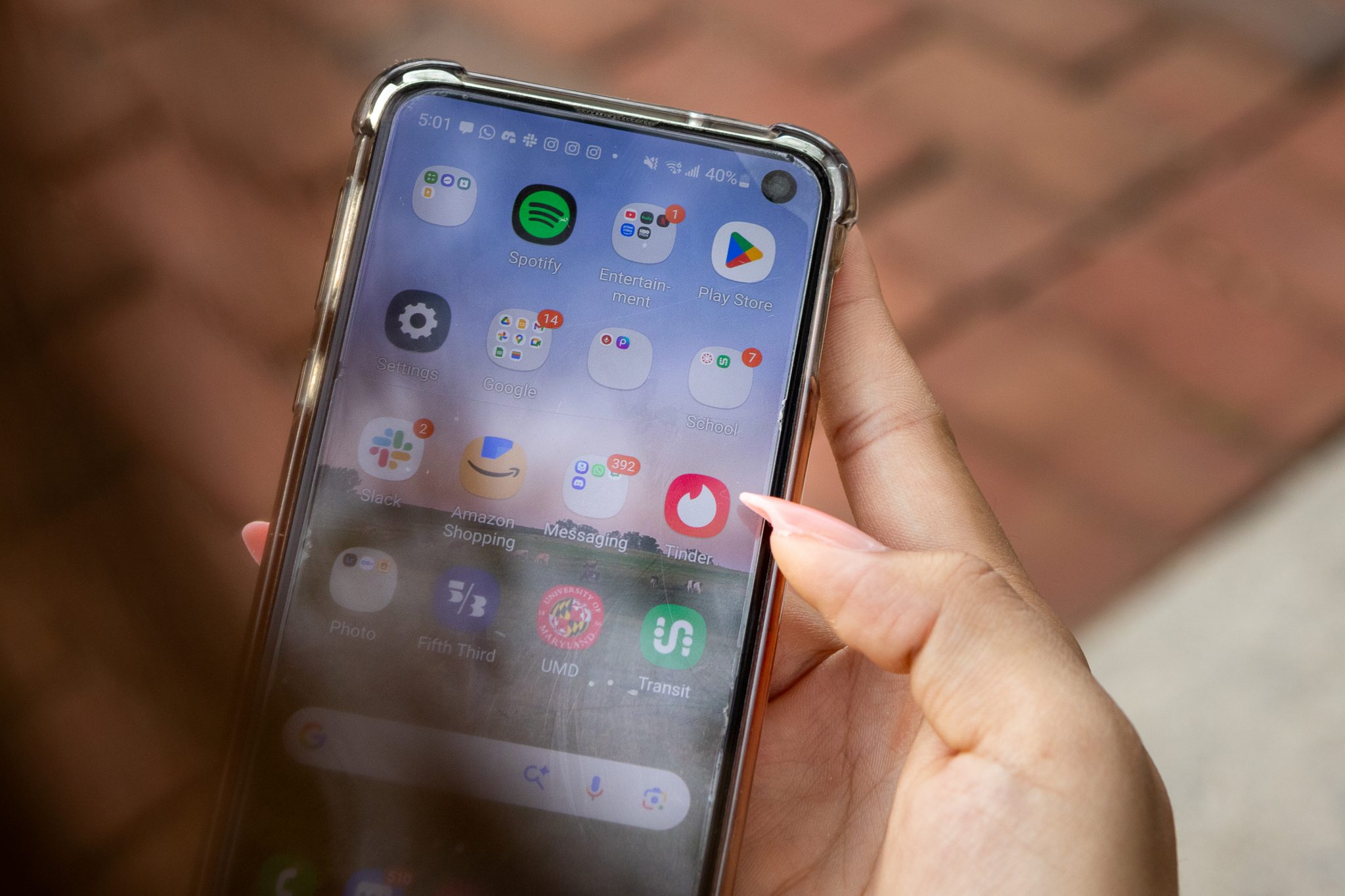By Hannah Chen
For The Diamondback
After noticing her students growing increasingly distracted by their cellphones each semester, University of Maryland professor Sara Herald decided to do something about it.
The director of this university’s Southern Management Leadership Program implemented a cellphone ban in her entrepreneurship class this fall.
While Herald has previously discouraged personal electronic devices in her class, this is the first time she has locked away phones and smartwatches in Yondr pouches. These pouches are designed to allow users to keep possession of their device, which remains locked in the pouch until they are allowed to unlock them.
Herald was inspired to purchase the pouches when she heard about its recent use in K-12 classrooms.
[UMD student creates mental health brand, publishes self-reflection journal with her mother]
Initially, students said they were taken aback that their devices would be locked up, but Herald believes that they have since adjusted positively.
Senior operations management and business analytics major Tonia Agwumezie has found her classmates and herself more focused in class when their cellphones are locked up.
“It’s out of sight, out of mind, so that allows us to really take into account what she’s saying and actually be present in the moment,” she said.
Another one of Herald’s students, Brandon Scott, who is a senior real estate and the built environment major, agreed the new policy helps him stay focused. He feels he is gaining more from his time in the classroom and walking away with a better education.
“It’s really impacted my retention of the stuff being taught,” Scott said.
The cellphone ban has also cultivated a stronger connection between classmates, Herald said. During breaks, her students are no longer engrossed in their phones, she said. Instead, they talk to each other.
Scott said he has seen his cohort become more cohesive, which allows them to create stronger relationships that go beyond the classroom.
[Alum, Iowa judge David Porter credits passion for law to his time at UMD]
“We’re also more present with our peers,” Scott said. “Overall, we’re creating better connections that exist in other events.”
Agwumezie said that part of what helps Herald successfully implement this ban is the way she outwardly shows her intentions are for the betterment of her students.
Herald showed her class the statistical difference in focus between students who have access to their phones in class versus those who don’t.
According to a study done by Yondr, the usage of Yondr pouches in the classroom has increased student success by 6.27 percent and lowered behavioral referrals by 44 percent. This helped put the ban in perspective for students in Herald’s class.
“It’s not just taking it away for us not to have it,” Agwumezie said. “[There’s] actually a purpose behind the motivation and making sure that we are in the moment.”
Herald acknowledges that it may not be the right approach in every academic setting, but has been satisfied with the differences she has noticed in her own classroom.
She believes that there are many benefits for keeping technology put away in the classroom when it’s not functioning as an academic tool.
“I encourage anybody who’s curious about it to experiment with it,” Herald said.



